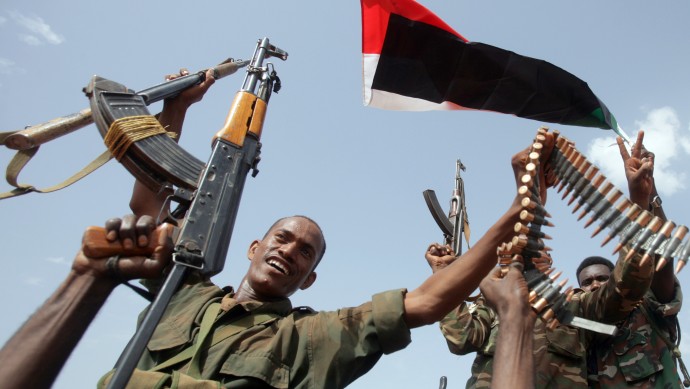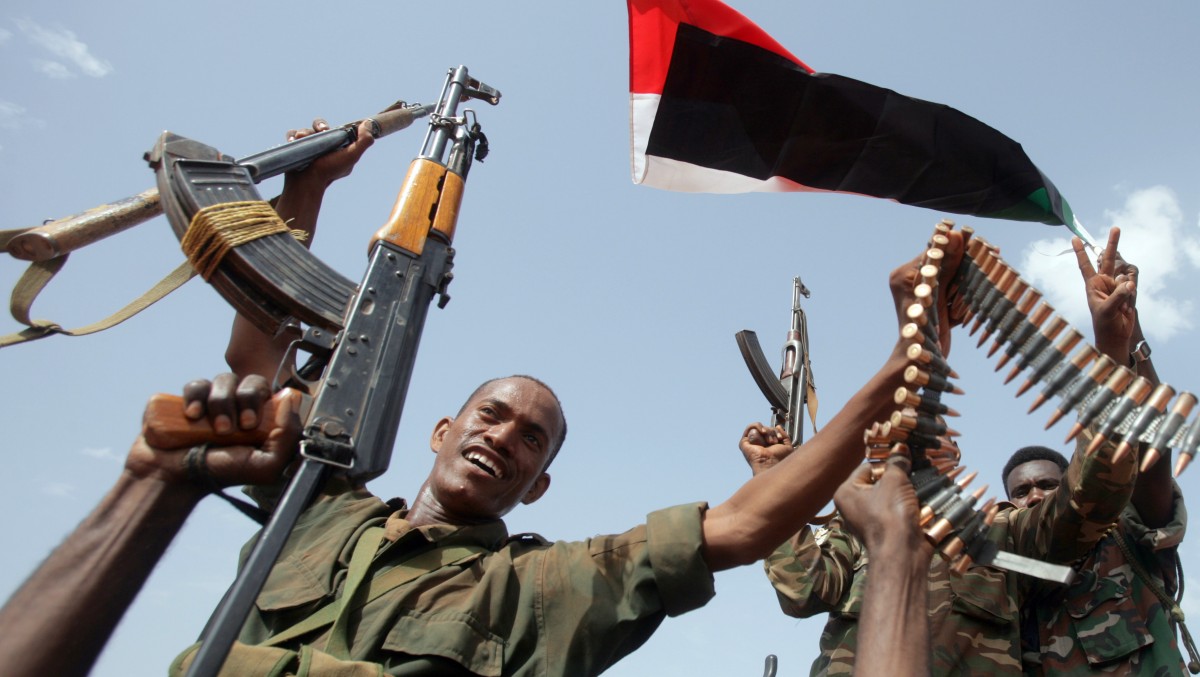
(MintPress) – Amnesty International (AI) is lambasting the army and police of South Sudan for carrying out widespread campaigns of rape and violence against its own people — accusations the U.S. should pay attention to, considering its financial support and public pro-human rights stance.
The very people employed to keep South Sudan safe have turned against their own civilians, rejecting human rights and the promise of a more peaceful and safe Sudan. The report issued by AI details horrific incidents of violence carried out by the South Sudan Army (SPLA) and Police Auxiliary Force (SSPS), including rape, murder and other forms of torture against the civilian population.
“Far from bringing security to the region, the SPLA and the police auxiliary forces have committed shocking human rights violations and the authorities are doing very little to stop the abuse,” AI Africa Director Audrey Gaughran said in a press release.
While alleged isolated incidents of murder and rape have been recognized by the government through charges against five male security officials, the government has yet to launch a full investigation — and the U.S. has yet to push it to do so, publicly. Meanwhile, those in the Jonglei region, where widespread abuses are reported, are revolting against the government.
The incident comes at the same time U.S. oil companies are awaiting word on contract bids for oil exploration in the very same region where widespread abuses by SSPS and SPLA officials have been repeatedly reported.
Abuse in South Sudan
Ironically enough, the cases of rape and torture were documented to have happened during the month of March — the month the government has dedicated to “Operation Restore Peace.”
Amnesty International researchers describe interviews with “scores” of civilians who back up claims that security officials were carrying out acts of violence against the population, including against those who were as young as 18 months old.
And such cases are anything but isolated incidents. Civilians told AI researchers that officers repeatedly returned to carry out the violence, which also included the destruction of villagers’ crops and the looting of their possessions — all the while creating an atmosphere of fear and destroying any hope for trust of the government.
AI’s report singles out the village of Thangojon, where soldiers visited three times — once in August and twice in July.
“I was at home with five other women and our children,” a South Sudanese mother told AI. “They asked to give us guns and we said we didn’t have guns and we were beaten with sticks. They took up to pools behind our homes. One soldier stopped on my neck to push my head down and one stepped on my back so I couldn’t jump out. My brother’s wife was unconscious.”
What’s certain is that there are cases of extreme abuses of power on behalf of SPLA and SSPS. Five soldiers were arrested for alleged rape and murder, although the court proceedings have yet to unfold. Now, Amnesty International is calling on the government to carry out its own impartial investigation into abuses that go beyond the five detained soldiers.
And that’s where the U.S. could step in.
Don’t bite the hand that feeds you
The U.S. was behind the push for an independent South Sudan, free from control by the Khartoum government. When South Sudan was declared independent in July 2011, it was seen as a victory for the U.S., too, as it had provided $270 million worth of aid to the south since 2005.
In 2011, the U.S. Department of Treasury’s Office allowed export of oil equipment to oil-rich South Sudan, which, according to the agreement with the north, is entitled to half of all oil revenue produced between the two nations.
As pointed out by South Sudan’s New Nation Newspaper journalist Luka Biong Deng, the relationship between the U.S. and South Sudan has been “special,” with the U.S. providing more humanitarian assistance to South Sudan than any other African country. Throughout Deng’s article, it’s asserted that the relationship between South Sudan and the U.S. plays an important part in the future of the new state.
So, why then wouldn’t the U.S. exercise its clout and push the government to shape up its extreme human rights abuses (rape, murder, torture)? While the answer isn’t 100 percent clear, there is a role played by the private sector that highlights another dimension to the issue.
The very area where the abuses were said to be taking place, in Jonglei, is rich in oil and is now open for oil exploration bids. The companies vying for the exploration rights include Exxon Mobil and Chevron — along with Chinese and European oil companies. So while it may seem the U.S. has the upper hand in the matter, there are issues relating to its private companies it will take into consideration.
Along a similar vein, U.S. President Barack Obama on Friday waived penalties associated with the Child Soldiers Protection Act of 2008 that could be pressed on South Sudan, along with Libya and Yemen, if it was discovered they were using child soldiers. The move shocked human rights activists, as the 2008 provision was supported by former Republican President George W. Bush.
“After such a strong statement against the exploitation of children, it seems bizarre that Obama would give a pass to countries using children in their armed forces and using U.S. tax money to do that,” World Vision Senior Policy Advisor for Child Protection, Jesse Eaves said in a News Busters article.
South Sudan, the US and oil
Even before South Sudan’s independence in July 2011, it was clear the U.S. favored the oil-rich area over the Khartoum government of the north. And although South Sudan is its own country, its issues with the Khartoum government continue, as the two countries evenly share oil revenue.
Essentially, South Sudan and Sudan need one another. While South Sudan has the oil — Sudan has the means to transport that oil to the outside world. That oil has caught the interest of the U.S., Russia and China, with Russia and China taking the side of the Sudan and the U.S. remaining faithful to South Sudan.
Any interruptions to the smooth relationship between the U.S. and South Sudan, even if it has something to do with serious issues including child soldiers and the rape and murder of innocent civilians, is likely to be compromised.
Now, it seems as though it is.


